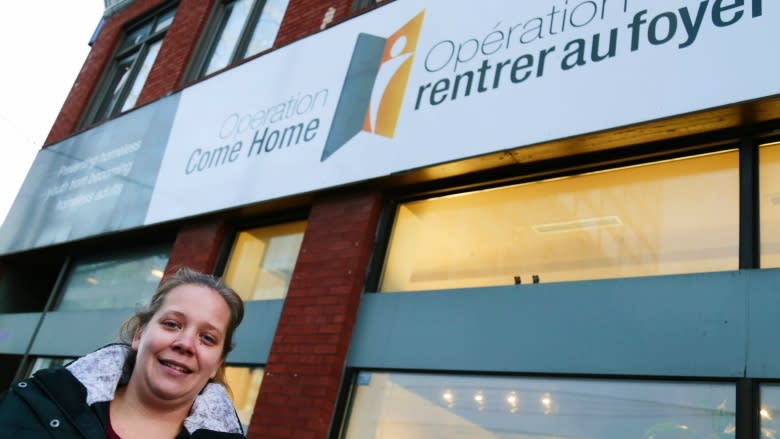Agencies call on Ottawa landlords to house more homeless youth
Agencies supporting homeless youth say a lack of affordable housing is preventing street kids from finding safe places to live — and they're calling on landlords to do more to get them into homes.
"We need to get ahead of the curve," said Kaite Burkholder Harris, project co-ordinator for A Way Home Ottawa. "We are creating the next generation of chronic homelessness, unless we're supporting young people early."
A Way Home Ottawa supports a coalition of agencies working to end youth homelessness. Those agencies include the Youth Services Bureau, Operation Come Home, and the YMCA/YWCA.
According to the latest progress report from the Alliance to End Homelessness, 844 youth between the ages of 16 and 25 stayed in an Ottawa emergency shelter last year.
Burkholder Harris said she's especially eager to reassure property owners who doubt the city's Housing First approach, which aims to take vulnerable people off the streets or out of shelters and place them into a home of their own — regardless of whether they're dealing with substance abuse or mental illness.
While many landlords recognize the importance of making sure young people have a safe place to stay, Burkholder Harris said that others worry whether homeless youth have the skills needed to live independently.
Those concerns were heightened last month after an Ottawa landlord revealed how a formerly homeless tenant had trashed his apartment.
Burkholder Harris said agencies recognize that homeless youth may need even more intensive supports than adults to prevent similar incidents.
"It's not just about finding homes for youth, but helping them transition to adulthood, providing the supports they need after leaving their families," she said.
Landlords seek assurances
John Dickie runs the Eastern Ontario Landlord Organization, which represents some of Ottawa's largest rental property companies. All told, its members own or manage more than 37,000 rental units in Ottawa.
Dickie says most landlords don't ask for much from tenants: pay the rent, respect your neighbours, and don't trash the apartment.
But when it comes to housing homeless youth, landlords do want assurances that agencies will properly support their clients.
More than that, Dickie said property owners and managers would like to see youth agencies take on a greater share of the risk — by guaranteeing part of the rent, or agreeing to cover any damage their client causes.
"The agencies are the people putting forward these youth," he said. "If they're not prepared to stand behind them, why should we take the chance? Why should we assume they'll be fine?"
Supports already in place
Katie Sanders, a housing and outreach worker with Operation Come Home, said that not only do agencies understand landlords' concerns, they're already working to address them.
"Half the fight we're fighting with our clients is finding housing," she said. "The second half begins when they become housed and we're continuing to teach them life skills, the Landlord Tenant Act — all those sorts of things, so they can stay and maintain their housing."
Still, Sanders said it's unacceptable that her clients must sometimes wait up to six months before finding suitable housing.
"We definitely do need landlords to step up," she said, adding that agencies will hold up their end of the bargain and provide the supports young people need to become good tenants.
All her clients really need, she added, is for landlords to give them a chance.



